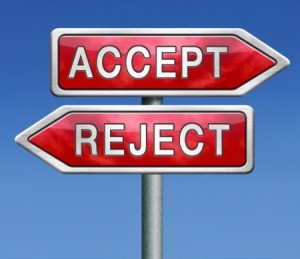Trauma, Abuse, and Abandonment

 Everyone has experienced trauma, pain, fear, and rejection; all of these injure your soul. Many Christians struggle and do not experience the peace, joy, and contentment that God desires for them because they are unaware of the damage that has occurred in their souls. When you receive your salvation, your soul arrives before the throne God in varying degrees of brokenness. Some of you have been beaten down and shattered, while others have acquired nicks and bruises.
Everyone has experienced trauma, pain, fear, and rejection; all of these injure your soul. Many Christians struggle and do not experience the peace, joy, and contentment that God desires for them because they are unaware of the damage that has occurred in their souls. When you receive your salvation, your soul arrives before the throne God in varying degrees of brokenness. Some of you have been beaten down and shattered, while others have acquired nicks and bruises.
Trauma, abuse, and abandonment are closely linked because they all result in a psychological or emotional disturbance. When you experience trauma, abuse, and abandonment, it affects your expectations and how you see yourself and others. Your experiences produce messages, and those messages develop into faulty core beliefs and mental strongholds that direct your expectations, emotions, speech patterns, life, and relationship skills. You have to choose to “not be conformed to this world.” If you agree with the messages from your experiences and adopt faulty thinking and behavioral patterns in response to them, you have been conformed to this world.
“And do not be conformed to this world, but be transformed by the renewing of your mind, that you may prove what is that good and acceptable and perfect will of God.” (Romans 12:2)
If you have been victimized, it does not mean you have to think, live, or respond like a victim. You are an overcomer; every form of damage can be processed and overcome when you don’t allow it to taint your tomorrow with fear, negative expectations, pain, or rejection.
Trauma is not necessarily abuse, but all abuse is trauma. Trauma is a wound formed by sudden physical injury or an emotional shock that jars the mind and emotions. It can produce lasting damage to the psychological development of an individual. Everyone has experienced trauma through life occurrences. Trauma can be classified into several areas: physical, accidental injuries, illnesses, psychological, and emotional.
Abuse is the improper treatment of an individual; it is a misuse of authority. When you are treated by another person or group wrongly, you have experienced harm, and you have endured abuse. Abuse can be verbal, emotional, psychological, physical, sexual, and even spiritual. Most people do not know how to identify the more subtle forms of abuse such as emotional, psychological, and spiritual abuse, which are epidemic in our society. Some signs that you have experienced one of these more subtle forms of abuse include feeling as if the rug has been pulled out from underneath you, feeling confused and disoriented, receiving double messages, feeling disrespected, feeling controlled and manipulated, not being heard, not being validated, and not having your needs met.
All abuse systems will involve anything from blatant to subtle forms of manipulation and control and will range from less severe to extreme. All abuse damages you in your thinking, expectations, self-image, life, and relationship skills. The damage done to your soul is directly proportionate to your experiences. No abuse is to be swept under the rug, because any and every destructive event harms your soul.
Abandonment is a form of abuse that is not a result of an action, but rather from a lack of action. Most people don’t realize that this is abuse, but neglect is a form of abuse. If your needs were left unmet from childhood, or even anytime in your adult relationships, you emerge with pain in your soul. When someone is emotionally unavailable, does not communicate, and withholds information, support, comfort, or affection, it is abandonment – an abuse from a lack of action.
In addiction systems there is always abuse. The person who is abusing a substance or event will do whatever is necessary to protect that primary relationship, which is with the substance or event, and will sacrifice others to meet their addiction. The result is that their primary relationships will be left with unmet needs, a lack of safety, honesty, or the availability to be consistently emotionally present. As the addiction worsens, so does the abuse. It is not possible to be in an addiction cycle and not become abusive.
Every person should learn the types of abuse and their characteristics, the many types of verbal abuse, the 20 healthy behaviors in relationships, and other tools that help to identify when abuse is present. It will empower you. Learn what healthy looks like before you find yourself in an abuse system. If you question if you are experiencing a form of abuse, if you feel uncomfortable, or are in a painful relationship, please seek help. There is hope and healing for you. God wants to make you 100% whole.
Dr. Michele
Copyright © 2013 by Michele Fleming Ph.D.










Contact With Us